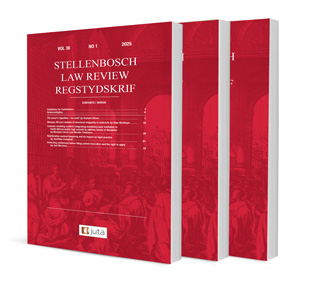The lessor’s hypothec – for rent?

The lessor’s hypothec – for rent?
Author: Graham Glover
ISSN: 1996-2193
Affiliations: BA LLB PhD, Professor, Faculty of Law, Rhodes University
Source: Stellenbosch Law Review, Volume 36 Issue 1, 2025, p. 1-15
https://doi.org/10.47348/SLR/2025/i1a1
Abstract
The lessor’s hypothec is a form of real security that has been recognised since the Republican period in Roman law. The hypothec, as it is traditionally understood, allows a lessor to attach and to sell in execution the property on the leased premises to set off arrear rent that the tenant owes. This contribution investigates two questions that have received little attention in the case law and literature. The first is how the concept of rent should be interpreted and understood in a modern world where lease contracts may describe the tenant’s financial obligations in various ways. The second is whether the hypothec should apply to any claims beyond the obligation to pay rent. An argument is made for an expanded approach to the traditional understanding of the application of the hypothec with respect to both questions. Nevertheless, reasons are given as to why this will not unduly stretch the range of application of the hypothec in any significant practical way.